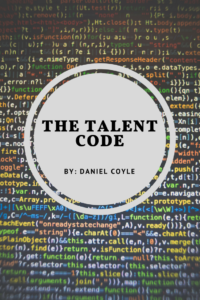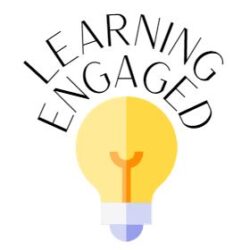(This post contains affiliate links.)

If you are looking for a great end of summer read, The Talent Code, by Daniel Coyle (affiliate link) is one of the best. Coyle inspires all of us who have ever wished we were better at something or those amazing educators who are always looking for ways to help their students.
Book Review: The Talent Code: Greatness Isn’t Born. It’s Grown. Here’s How.
An unknown basketball player named Michael Jordan seemed to become famous overnight. After his coach cut him from his high school basketball team for lack of talent, he appeared to jump into his college career a star. How did he become possibly the all-time greatest basketball player with such a rough start? Was it grit, talent, or just luck? According to Daniel Coyle, it was because Jordan had cracked “the talent code.”
The Talent Code, an eloquently written book by Daniel Coyle, highlights the concept of talent including how, as the title of the book explains, “Greatness isn’t born. It’s grown.” Daniel Coyle is a New York Times bestselling author and a two time National Magazine Award finalist. He has given many presentations on talent, specifically, finding ways to break “the talent code.”
Advocating that many people are looking for ways to be the next Michael Jordan or Marie Curie of their field, Coyle explains the code for acquiring talent and works to dispel common stereotypes behind natural talent and practice. By using humor combined with success stories from around the world, Coyle’s book engages the reader’s interest from the start. Structured in a teaching manner, Coyle builds the reader’s knowledge from basic understanding regarding talent in the early chapters to revealing how the word “talent” is not as concrete as the reader may have originally thought. Furthermore, while there are a few people born with natural talent, most success stories are actually the result of what Coyle calls “deep practice” (p. 18), taking years of the right practice, attitude, and sacrifice to obtain.
With a basis for his study focused around myelin, the film that wraps around neurons to make them stronger and longer lasting, Daniel Coyle visits many different “talent hotbeds” (p. 1) having produced incredibly talented people, looking for the secret to their success. Each location held a few key features resulting in a byproduct focused around high accomplishments along with an increase in myelin. By not only providing case studies to support the key features but also specifically listing elements within each feature, Coyle sets up the reader to apply what he teaches to their own lives.
As an educator, it is often difficult to encourage and motivate students determined they aren’t capable of success. Daniel Coyle’s book gives educators the vocabulary and examples they need to give their students confidence. Student’s often have a hard time realizing their role models didn’t become great overnight, it took years of practice and desire to acquire their skills. This occurs because people who excel often make it look easy and the struggles and tears accompanying success are not seen. Coyle’s book will help students overcome their insecurities and realize they have the tools to discover their own talent. Theory remains great, but practice backed by theory is better.
The Talent Code is a well-organized book, easy to follow and read. With thorough explanations and a clear format, the reader connects new information to information Coyle already presented in earlier chapters. He thoroughly connects all the pieces together in order to see the big picture. With repetition of the saying, “Skill is insulation that wraps neural circuits and grows according to certain signals,” the reader can see how it all fits together and applicability for their own lives (p. 117).
With a positive tone and inspiring message, The Talent Code is highly recommended as a must read. It will change the way the reader looks at strengths and weaknesses, increasing confidence and giving the tools to grow talent. If you have ever tried to get better at something or have looked longingly at someone else wondering why you couldn’t do what they can do, the answer, as explained by Coyle, is anyone can be like them, they just have to break “the talent code,” finding a way to engage in deep practice and increase myelin. Sounds easy right? Not necessarily, but definitely attainable.



This looks like an amazing book! I could really use this info in my classes at school! Thanks for the information!
You are welcome, Jennifer Lee! Let me know what you think if you get a chance to read it.